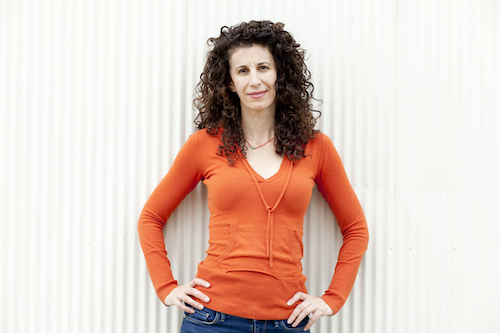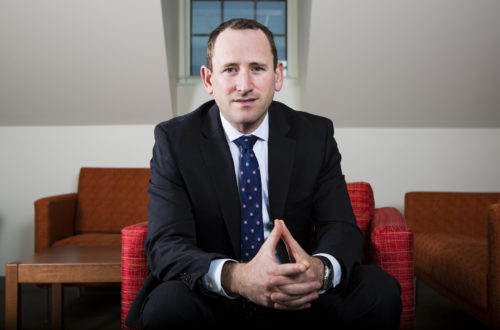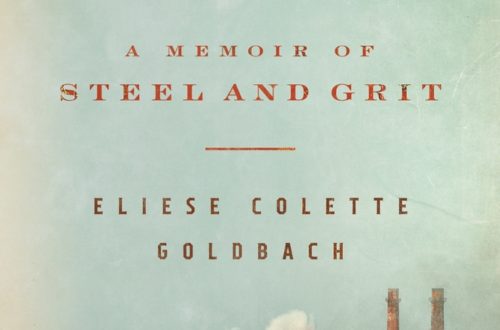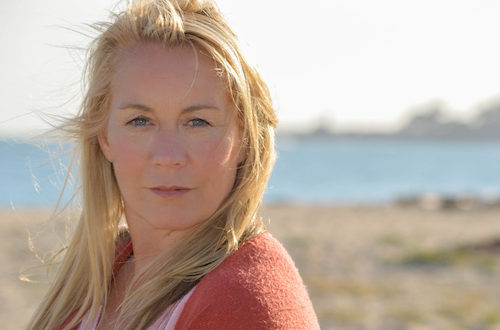
Address to The New School Graduating 2020 Class from Rachel B. Neumann (TNS ’01)
Rachel B. Neumann will read and discuss her speech on LIVE with LIT as a part of LIT’s Commencement 2020 this Tuesday, May 19th at 7pm. Join here.
*
Dear Writers,
If, when I call you “writers” you don’t wince or duck your head or look behind you to see who I am talking to, then congratulations, you are cooked enough and ready to go out in the world. Only one other thing is required of you now and — unlike in some vocations, where it takes some work to figure out what to do —as a writer, it’s devastatingly clear.
All else that is required now is that you write.
Whether you write in the middle of the night by the light of your phone or blindfolded first thing in the morning so you don’t get tempted to edit, you have to keep putting words on a page. There is no getting around it. Believe me, I have tried. The good news is you can take “how to be a writer” off your list of things to worry about. I know that there is likely a lot more on your list, or at least there was for me when I graduated from this MFA program with three jobs (stripper, bartender, and computer technician), $30 dollars in my bank account, no family around but more roommates than I could keep track of, and a precious collection of stories, each word in each one caressed, scrutinized and cared for like an only child. I also had a little nut of what-ifs that I kept in my mouth and worried with my tongue every time I sat down to write.
What if I just wasn’t a good enough writer? What if I wasn’t smart enough? What if I wasn’t a writer at all. Then what was I that was worth being? Was I anything?
These are things I’m happy to tell you that you don’t need to worry about, just in case they’d crossed your mind. And there are a few more you can cross off your list. For these, I thank Octavia Butler, who sat with me one rainy night in Seattle after I had gathered my courage from behind the cash register in the bookstore to ask her what I should know.
“Don’t worry about imagination,” she told me, “if you have enough imagination to worry about it, then you have enough imagination to write.”
“Don’t worry if your story is good,” she continued, once I’d brought her tea. “Just keep writing until the words get better. Worry is just another word for distraction.”
Don’t worry about having time to write. She continued. Chances are very high, you will not have enough time to write. Enough time to write does not exist, so you don’t have to wait for it. Write in the crevices and the margins, on the subway platform, in the bathtub, and lying on the bedroom floor. Write in the grocery line. Some of the best writers I know are single mothers with sinks full of dishes and piles of laundry that reach the ceiling. Let the laundry fall. Let the dishes balance.
If you wait until you have time to write, you will wait too long.
And don’t worry about getting published, I’ll add, now having worked in publishing for over twenty years. It will likely take persistence, dedication, and a willingness to listen to a good editor, but if it’s important to you, it will happen. Connections and being born into privilege help, no one should pretend they don’t, but the writing part still matters most of all.
You are, though it may not feel that way right now, incredibly lucky. To have been in this program and to graduate, sure, but also to graduate into this strange time when no one has absolutely any idea what the world holds. Not knowing is the writer’s home.
Here is the story of how I found mine.
Once as a child—I must have been four or five—I walked, alone, into the forest. I didn’t have a jacket, a backpack, a flashlight, or a snack. I was probably wearing shoes, but there’s a chance I wasn’t. I definitely didn’t have a cell phone with me. It was the mid-seventies and cell phones hadn’t been invented yet, but even if they had, we were living in the mountains with no reception and no electricity, so it would not have done me any good.
I definitely didn’t tell anyone where I was going. It wouldn’t have occurred to me. I never told anyone where I was going, and besides, I didn’t know.
I walked into the dark clusters of madrones and ponderosa pines so thick I could not tell you when the sky darkened. I walked and walked. There were no signs, no trail markers. At some point, it may have been hours later or just a piece of an hour, I stopped in my makeshift path. When I’d first walked into the forest, I’d walked away from a chorus of noise, kids playing, grown-ups talking, darks barking, the grrr of a chainsaw. But now all was quiet. I could only barely make out the sound, underneath my breath of the rushing creek far down the hill.
There was no clearing nor cliff, but as I stood there, alone, in the quiet and creeping dark, I was at an unseen edge surrounded by trees and mountains that, as far as I knew, went on forever. I had never been in this particular spot before. I did not know what lay beyond it and I had no thought of how I would find my way back.
But I was not lost. This forest was my home, these trees my walls, these mountains were the whole world. I took a meandering path back until I could hear the shouts of other children and the growing roar of the creek.
No one had come looking for me. No one had even noticed I was gone.
In a stroke of subconscious genius, I’d returned just in time for all the kids to be called into dinner.
I say I was four or five when this happened but I don’t know which and may not have known at the time because I lived on a commune that did not make a big fuss about birthdays. We liked a good party—and solstices and equinoxes were cause for all-night celebration—but individual birthdays weren’t met with much fuss. I didn’t know my last name or my astrological sign, but I knew who I was and what I was part of. I knew how to swim in deep water, how to milk a goat and make cheese, how to climb up and roll down a hill without getting hurt. I was part of everything that existed. What I didn’t know, I could learn from the trees and the animals, from the bigger kids, and, if they didn’t know, as a last resort, from a grown-up.
Soon after my walk into the deep forest, we left the commune. “You can’t change the city living in the mountains,” my father told me as we waited alongside the freeway out of Redding in 103-degree heat. We were hitchhiking down I-5 with all of our belongings and, for reasons forever unknown, a humongous cardboard box filled to the top with banana chips. Car after car passed us by while I chewed the oily yet dry and flavorless chips. To this day, I will never eat another banana chip again.
“It’s just temporary,” he reassured me, patting my shoulders in the back of the old blue truck that finally picked us up. I’d kept my eyes looking back towards the mountains, never mind how the wind pushed the hair into my face. “It’s just for a little while,” he said.
A while turned into the rest of my childhood. My mountain-climbing, goat-milking, river jumping skills were of little use to me in Berkeley. I’d diligently put them aside and turned to words.
In school, no matter what the subject, I wrote love poems in my notebook. On the bus, surrounded by strangers, I wrote their imagined lives. Eating lunch alone, no cigarette or friend for company, I wrote to look busy and then, magically, I was.
But thirty-five years after we left the mountains, I woke up one morning in my own bed in my own house, completely and utterly lost. I knew what day and time it was, down to the minute, I knew my address and zip code. I knew the man lying next to me, the same man who had been lying next to me, off and on but mostly on, for twenty years. I knew the sounds I heard in the kitchen were coming from children I had given birth to and who I knew as well as I knew another living soul. And yet, I had no idea really, where I was, or what I was doing, and how I was going to navigate the next moment, much less the rest of my life.
I knew I was supposed to get up, say good morning, make the children food, shuttle them off to institutions that were supposed to educate them on what they needed to know, go to my own wonderful job as a book publisher, a job that was, by many outside estimations, the best possible job a person could have. I knew all this and yet I could not do it. I wasn’t that I didn’t want to . I just had no idea how to do it. I could not move.
I had known this day would come. After all, I had seen other, older, people one by one, hit a time in life, where they went from zooming along to a full stop implosion, like a single-car car crash. I had even, more than ten years earlier, feeling the tiniest trickle of what would become, this very day, a deluge, tried to stave it off, telling my partner, when the day comes that I want to blow everything up, remind me to write a book instead.
And yet, no prescience, no preparation, would help me now. I tried sitting up in my bed and practicing the mindful breathing I’d been teaching, and wiring about for the past ten years. No luck.
I tried a lot of herbal supplements. Maca. Ashwagandha. Blue Cohosh, Black Cohosh, Mauve Cohosh. They just nauseated me.
I organized a two-day silent Buddhist meditation retreat at work, where we communicated only through raised eyebrows and closed-mouthed smiles. Still lost. I got so good at yoga that I could stand on my head for hours. And yet I was still lost.
I knew a guy, a Peruvian therapist turned Shaman who I heard was living in a tiny one-room cabin outside of Eugene, Oregon. He had no indoor bathroom or hot water. I didn’t know much else about him except that he was a Scorpio who only ate fruit. Excellent, I thought. I’ll leave my partner, leave my children, leave my job, and go live with this man in his cabin in the woods for the rest of my life. As long as I don’t have to eat banana chips, everything will be fine. I could survive on mangoes and tangerines. It is a good indication of my state at the time that struck me as the perfect plan and I was filled with great relief.
I bought a plane ticket and packed a backpack. I left a note for my family, took the train to the airport, and sped through security–I had so little stuff. My sense of relief lasted until the plane touched down. The shaman, white, extremely thin and balding, with a long blond ponytail, met me at the Eugene airport and drove me out to his cabin at sunset. The one-room cabin was really more of a one-room closet. My backpack took up a quarter of the space. The shaman owned two white shirts that he rotated every other day and he slept on a mattress in the crawl space under the roof. The outhouse, it turned out, was more out than house— above the cabin and a good five-minute walk, it was a plank with a hole in it and a roll of toilet paper in a tin can. The shaman himself was fine, but I had been around enough spiritual teachers at this point in my life, to know he wasn’t mine. I was suddenly exhausted. After politely declining to sleep with him in the crawl space, I promptly fell asleep on the couch/bed/kitchen table and stayed there for two days.
The morning of the third day, I woke up early. The light was a chalky gray and I could hear the shaman gently snoring from the rafters. Still in my clothes I’d worn on the plane, I walked outside and found myself fully in the woods. The cabin was surrounded by a forest of thin birch trees and twisting oaks that I hadn’t seen when I’d arrived at dusk. There was a paved path alongside a little stream. The air was filled with the squabbles of starlings and crows.
I left the paved path behind and walked through the crunchy leaves until I could no longer see the tiny cabin. I walked until I could no longer hear the creek. At some point, I noticed that the wetness on my face was tears.
I mistook a curled brown leaf on the ground for a toasted bagel and realized I was ravenous. I’d eaten nothing but a few pieces of apple since I’d left California. By the time I made it back to the little cabin, the shaman had already put my backpack outside on the porch. He knew that it was time for me to go home.
I did not leave my partner. I did not leave my children. I did, however, leave the wonderful job. Out of that free-fall and uncertainty, I wrote my first book.The forest had reminded me. Sometimes it takes wandering into the unknown to find our home.
Do not worry. You will be alright. Your writing will be your compass. Let it always, always lead you toward the unknown.
*
Rachel B. Neumann is the Director of Strategy at Idea Architects, a leading literary agency. She specializes in creating books that you pick up before knowing why you picked them up and don’t put down until they’re done. For the past 15 years, she has worked in book publishing in New York and California with an emphasis on developing culture-shifting narrative nonfiction. As Publisher and Editorial Director of Parallax Press, Rachel transformed a small nonprofit into a multimillion-dollar trade publisher. She used her gift for finding books that make spiritual concepts useful to daily life to create Thich Nhat Hanh’s best-selling 8-book Mindfulness Essentials series. As the Associate Publisher and Editorial Director of Shambhala Publications, Rachel focused on developing diverse and underrepresented authors in wellness, psychology, health, politics, and creative living. She has co-created two successful children’s imprints and has worked with publishers large and small on expanding and diversifying their audiences. Rachel has been the personal editor and collaborator for internationally-revered teachers Thich Nhat Hanh, Pema Chodron, as well as dozens of other best-selling authors.
She is the author of four books. Her writing has appeared in the New York Times, the Nation, and other national and international publications. Rachel is based in the Bay Area and speaks and teaches regularly around the country. She’s happiest in the ocean, in the middle of a good book, or upside down. Not all at once.




